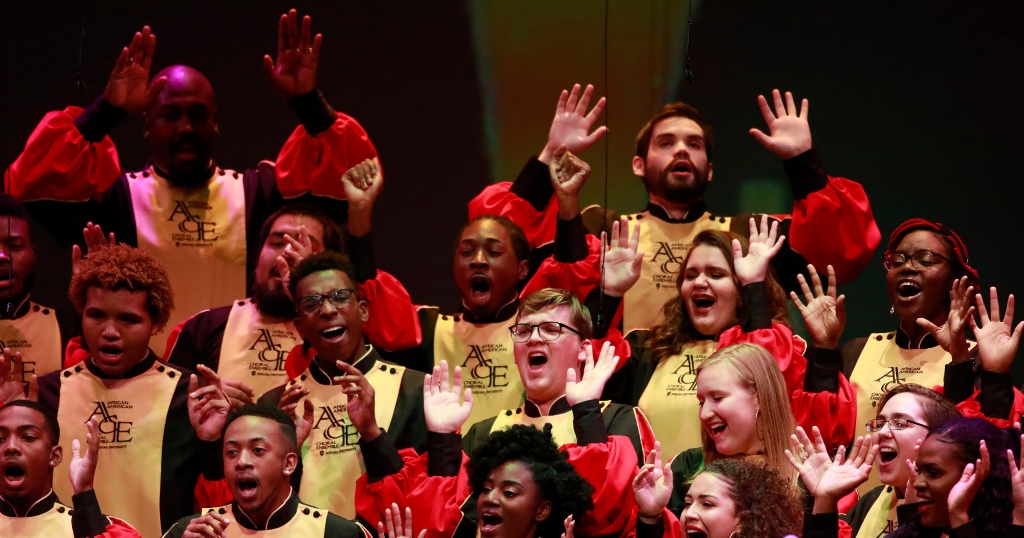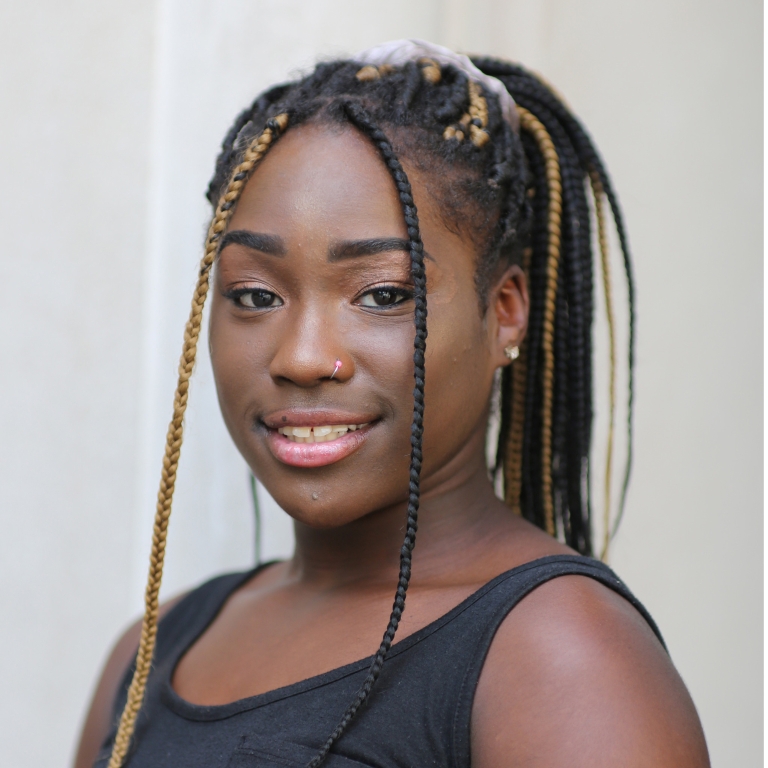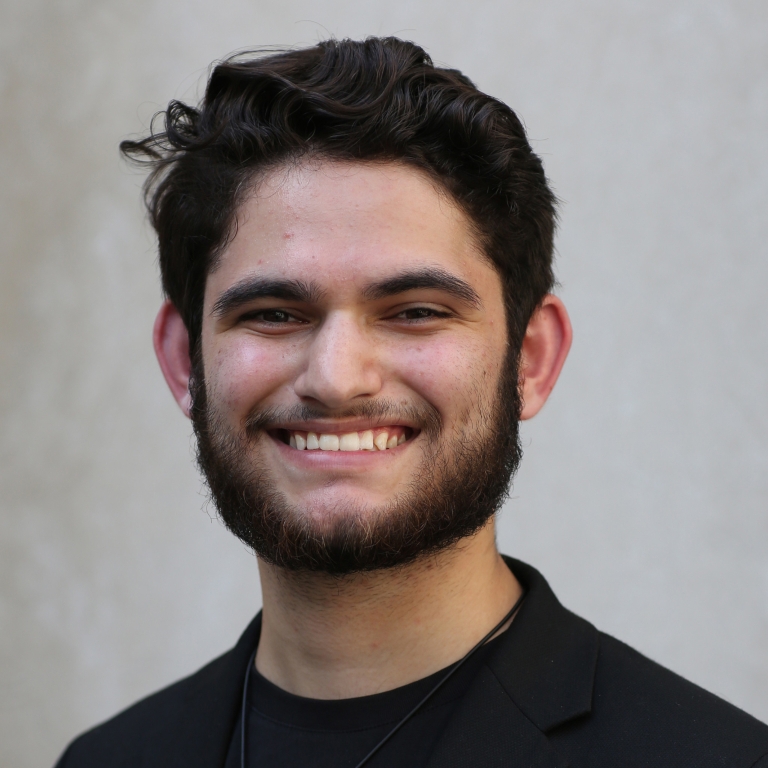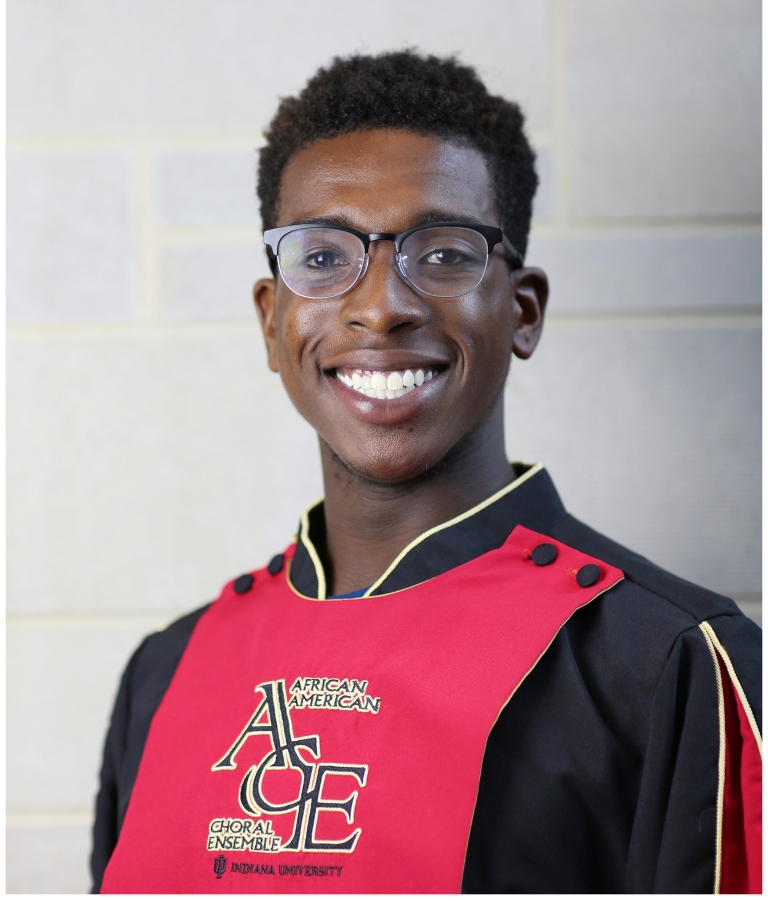
Since 1993, Potpourri of the Arts has been Indiana University's greatest celebration of African American performance. The African American Dance Company, the African American Choral Ensemble and the IU Soul Revue will perform at the Nov. 9 event at IU Auditorium, 1211 E. Seventh St., Bloomington.
Alex Goldblatt, a classical guitar and recording arts major, is a member of the IU Soul Revue. Jael Martin, who studies public relations, performs in the African American Dance Company. E.J. Wiggins, a law and public policy major, is a member of the African American Choral Ensemble. Inside IU Bloomington recently caught up with them to answer questions about the upcoming event, hosted by funk pioneer and legendary bassist Bootsy Collins.
Question: Was there a specific moment when your love and passion for performance started?

Martin: I realized during my younger years that I had a great passion for performing. I wanted to do everything to achieve that thrill of performing live in front of an audience, whether that was me playing my trumpet or dancing.
Goldblatt: I think part of me always wanted to be on stage from the first time I had a rational thought. I do know, however, when I got my first taste of the stage: It was at an after-school rock band program in fifth grade. That was the first time I played live music for anybody, and I was hooked.
After that point, that was pretty much all I wanted to ever do. Nothing has really changed from 12-year-old Alex to 20-year-old Alex in that regard.
Wiggins: It started when I was 5. My siblings and I would create shows and movies, and play church for our family members. We created an environment where I could express my interest in performance.
Q: What emotions do you feel as you rehearse for Potpourri of the Arts?
Goldblatt: Potpourri is a huge deal. Being in the Soul Revue and being the last act, we know we have to bring this whole magical night to a close. There's definitely a pressure associated with that, but in the best way possible.
For me, I feel a strong sense of responsibility in upholding the excellence of both Soul Revue's and Potpourri's past, and this being only my second time playing Potpourri, I know this is another chance for me to contribute to that standard set by such a high precedent. I just feel more and more confident as the days count down. This is gonna be a good one.
Wiggins: It's thrilling, but it also feels like hard work because we're trying to make a good show for the people. We want everything to be awesome and on point.
Martin: While I'm at practice rehearsing multiple days throughout the week, I go through various feelings and emotions as I approach the day of the performance. Those feelings include excitement, happiness, frustration, nervousness and, lastly, accomplishment.
Q: What do you want an audience to feel when they experience Potpourri of the Arts?
Wiggins: I want them to feel excitement, but also connection and inclusion to the music we perform. The African American Choral Ensemble specifically has tried to have a varied repertoire so that any audience member can understand the complexities of the African American music style.
Martin: As the audience is watching our great performance, I not only want them to just notice how good we can move our bodies with the beat and music, I want them to see and understand the greater meaning of what we are performing to and for. I want them to see the hard work and dedication we put in through our bodies and our sweat that we give throughout the performance. I want them to leave with the impression that we were more than what they were expecting.

Goldblatt: I want them to feel what I'm feeling. When the music is hitting right, it gets to you somewhere deep in your soul that is entirely indescribable in words. I call it "the zone." That's the point for me, where nothing in the whole world exists apart from the music.
The whole ordeal is a full-body experience. If we play the way we're supposed to, that's how the audience will feel.
Q: The performance ends with all performers collaborating. What does it mean to be part of a rich, full community of performers celebrating the African diaspora and African American culture?
Goldblatt: It's so special. Getting everybody together is quite the logistical puzzle, but I'm so confident in the end product. I think the finale really ends the show with a bang.
Martin: Coming from an area where there are predominantly white people with no cultural opportunities or activities to partake in, and then coming to IU and seeing a group of kids who are as interested and excited to be a part of a community as much as I am or even more, is such a great feeling. Being part of the African American and African diaspora culture at IU is more than just an activity or organization; it's a sense of belonging and feeling of home and comfort with the people you're surrounded with.
Wiggins: It's very impactful because it shows how far we as a community have come, to now not only accepting African American diaspora music as a cultural form of expression, but also promoting and celebrating it in performance. I think it's a valuable feature of the Indiana University experience.
Q: Bootsy Collins is hosting. How amazing is that?

Wiggins: I think it's pretty cool Bootsy Collins gets to share the stage with the African American Arts Institutes' ensembles. A legendary experience.
Martin: Bootsy Collins hosting our performance is such a great privilege that I am looking forward to seeing. I know he is going to contribute such great aspects, making our show special for our audience.
Goldblatt: Absolutely surreal. Bootsy and I have been working together since his first visit to IU. At this point he's become a mentor and friend to me personally. That's something I'd never have thought I'd be able to say.
He is such a kind and thoughtful person, and his musical legacy is a testament to itself. Having him there with all of us is going to make this performance the experience of a lifetime.


 The College of Arts Sciences
The College of Arts Sciences